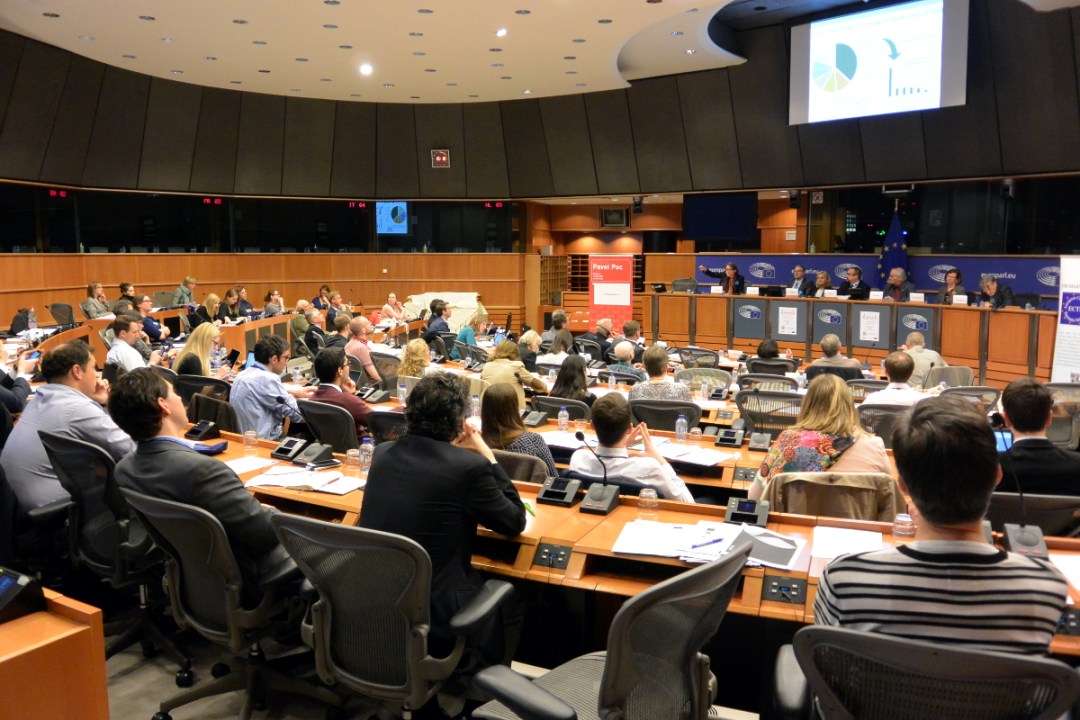
Download the workshop conclusions here
Glyphosate is the active substance in the most frequently used herbicide both worldwide and in the EU. Many institutions had provided its expertise on glyphosate´s impact on health including the divergent findings of the European Food Safety Authority on one side and of the International Agency for Research on Cancer on the other.
On June 29, 2016 the European Commission decided to amend the Implementing Regulation (EU) No 540/2011 as regards the extension of the approval period of the active substance glyphosate. This extended the approval period of the chemical until six months from the date of receipt of the European Chemicals Agency’s classification of glyphosate or until 31 December 2017, whichever is the earlier.
The ECHA´s Risk Assessment Committee concluded now that the available scientific evidence did not meet the criteria to classify glyphosate as a carcinogen, as a mutagen or as toxic for reproduction.
MEP Pavel Poc, Vice-Chair of the ENVI Committee of the European Parliament, the European Association for Chemical and Molecular Sciences (EuChemS) and the European Chemistry Thematic Network Association (ECTN) have invited ECHA representatives and leading experts in the field to participate in a scientific evidence based debate on glyphosate’s possible negative effect on human health, specifically in relevance to the biological molecular processes, metabolism, genotoxicity, endocrine disruptors, antimicrobial resistance, and other serious health related concerns.
This event took place on Wednesday, May 10, 2017 at 14:30-18:00 in the European Parliament room ASP 5E2.
The event was preceded by a paper co-written by Pavel Poc (MEP) and Pavel Drašar (ECTN President and EuChemS Executive Board Member) – Glyphosate in Recent Controversial Opinions.
A video of the complete event can be see below.
Programme
(Abstracts and speakers biographies are available here.)
13:45 – 14:30 Registration (EP Infopoint – Place du Luxembourg Entrance)
14:30 Pavel Poc, European Parliament – Opening words
14:40 David Cole-Hamilton, EuChemS President – A Welcome from the Chemistry Community
14:50 Pavel Drašar, UCT Prague, ECTN President and EuChemS Executive Board Member – Current Controversy in the Case of Glyphosate
15:05 Tim Bowmer, European Chemical Agency, Chair of the Risk Assessment Committee – Committee for Risk Assessment’s Assessment of Glyphosate
15:20 Silvia Lacorte, Institute of Environmental Assessment and Water Research – CSIC – Exposure to Glyphosate: Should We Worry?
15:35 John Coggins, University of Glasgow – Glyphosate – An Enzymologist’s Perspective
15:50 Kathryn Z. Guyton, International Agency for Research on Cancer – The Carcinogenicity of Glyphosate
16:05 Coffee Break
16:10 Jack Heinemann, University of Canterbury, New Zealand – Herbicides Induce Multiple Antibiotic Resistance in Human Pathogens (Videomessage)
16:15 Tore Midtvedt, Karolinska Institutet – Glyphosate and Eco-Toxicological Consequences
16:30 Peter Clausing, PAN Germany – Carcinogenicity of Glyphosate and the “Weight of Evidence Approach”
16:45 Helmut Burtscher-Schaden, GLOBAL 2000 / Friends of the Earth Austria – Glyphosate and Cancer: Buying Science
17:00 Michael Antoniou, King’s College London – Roundup Causes Non-Alcoholic Fatty Liver Disease
17:15 Hartmut Frank, University Bayreuth, Editor “Toxicological and Environmental Chemistry”, Chair and Founder of the EuChemS Working Party on Ethics in Chemistry – Do Chemists/Scientists Need to Understand Ethics?
17:30 Discussion
17:55 Pavel Poc, European Parliament – Conclusion











